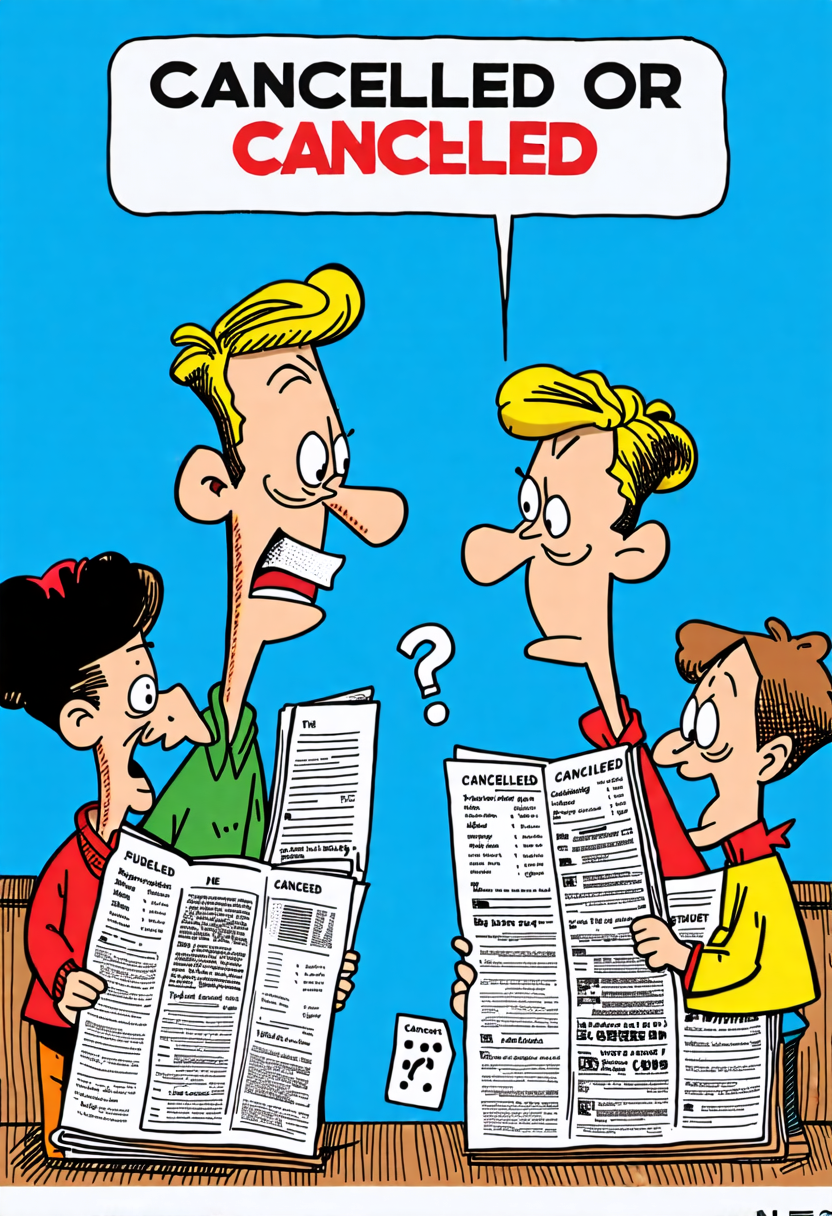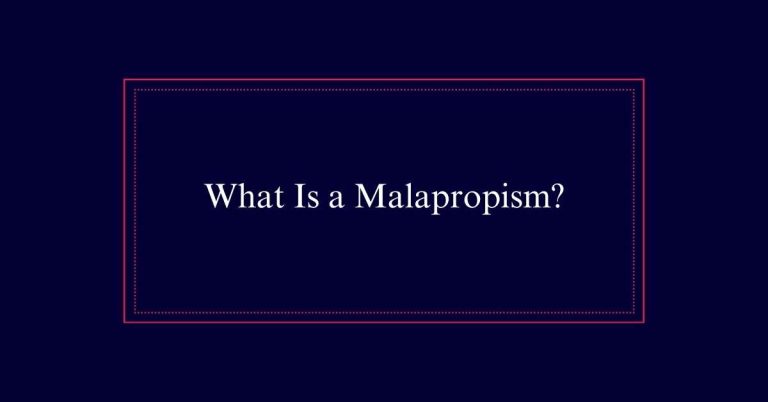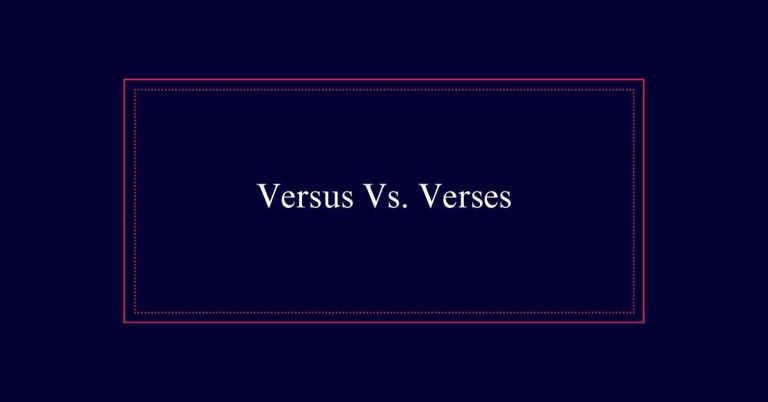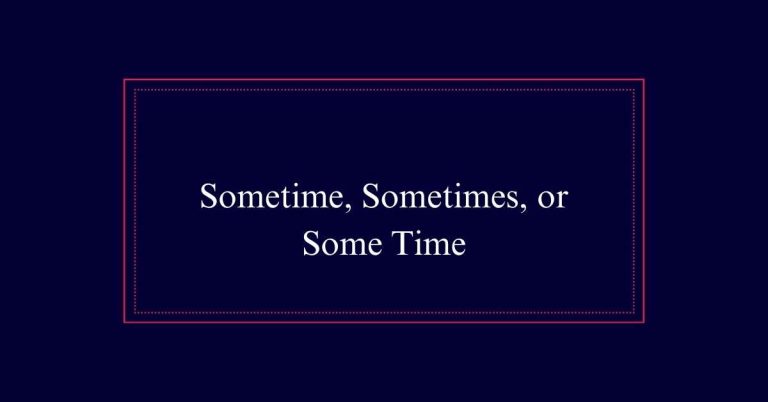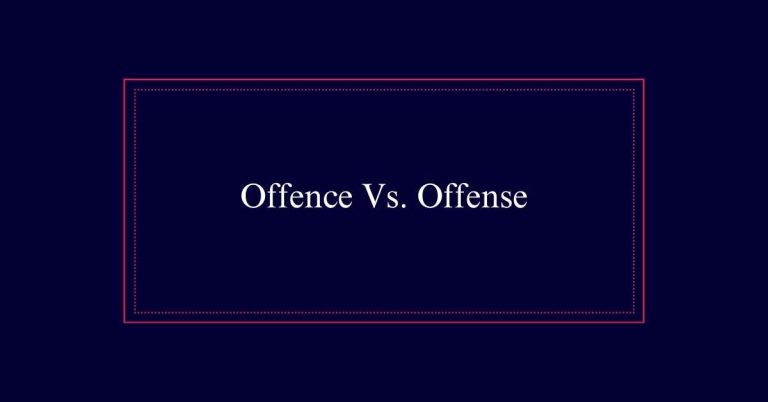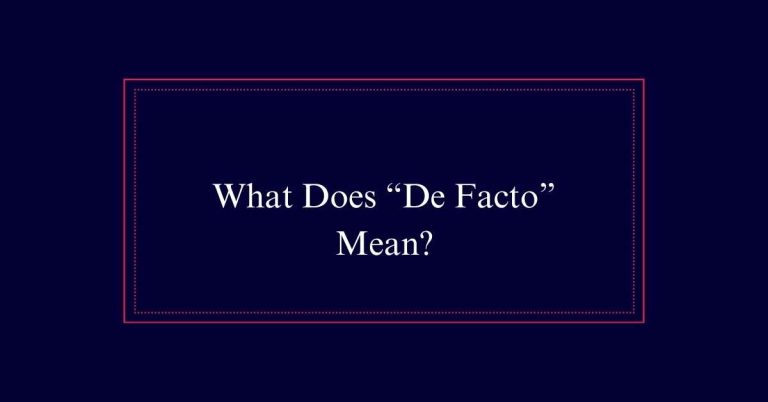Canceled or Cancelled
The spelling “canceled” is commonly used in American English, while “cancelled” is favored in British English. Both forms are correct, depending on the region. Historically, “cancelled” has been used longer in British English, but “canceled” has gained popularity in American English since the early 20th century. The key is to remain consistent with the chosen spelling within a document.
American Spelling
In American English, the preferred spelling of the past tense of ‘to cancel’ is ‘canceled.’ This spelling uses one ‘l,’ aligning with the simplified conventions often found in American English.
Examples of this usage include signs announcing school closures or concert cancellations. The pattern extends to related forms such as ‘canceling’ and ‘canceler.’
This spelling variation first gained prominence in the 1828 edition of Webster’s Dictionary, which aimed to standardize American English spelling. American media, airports, and organizations commonly use ‘canceled’ in their communications.
The adoption of this spelling has been consistent since the 1980s, making it the standard in American English for expressing the past tense of ‘cancel.’
British Spelling
British English typically prefers the spelling ‘cancelled’ with two ‘l’s.’ In British English, the past tense of ‘to cancel’ is spelled ‘cancelled.’ This pattern extends to other forms such as ‘cancelling’ and ‘canceller.’
Examples of British usage include airline announcements like, ‘British Airways cancelled 50 flights to and from London,’ and media reports on event cancellations. This spelling convention has remained consistent in British English throughout history.
Unlike American English, which often simplifies to one ‘l,’ British English retains the double ‘l’ in these words.
Historical Context
Although both American and British spellings are widely accepted today, the divergence in the spelling of ‘canceled’ and ‘cancelled’ has historical roots. This variation traces back to the early 19th century and the influential role of lexicographers.
- Noah Webster’s Influence: In 1828, Noah Webster’s dictionary advocated for simplified spellings, promoting ‘canceled’ with one ‘l’ in American English.
- Consistency in British English: British English maintained the traditional double ‘l’ spelling, which aligned with other similar words like ‘travelled.’
- Evolving Language Patterns: Over time, American and British English have developed distinct spelling conventions, reflecting broader linguistic trends.
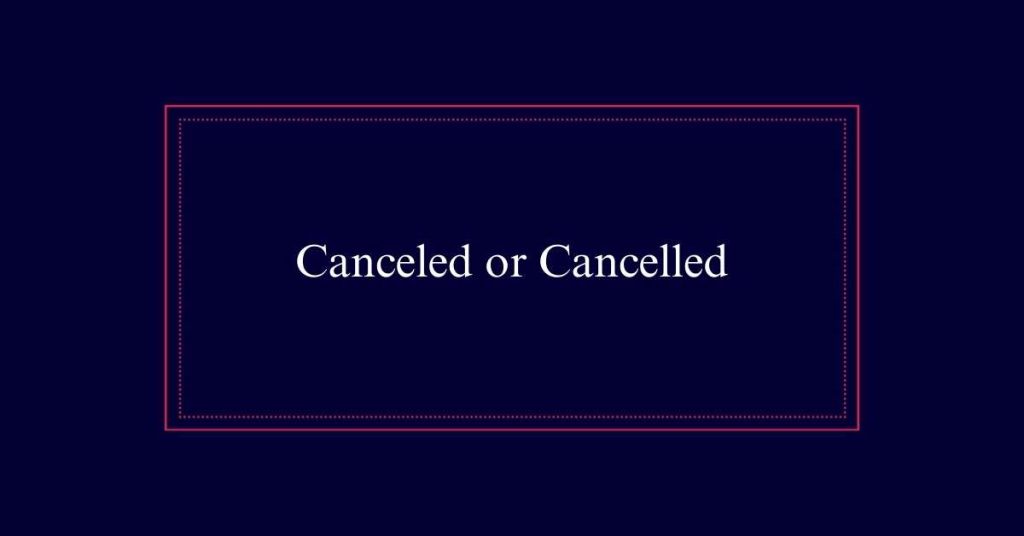
American Examples
American media frequently prefers the spelling ‘canceled’ when reporting on event or flight disruptions. For instance, headlines often feature ‘canceled’ to describe TV show terminations or major event cancellations.
The route with the highest percentage of canceled flights last year was New York LaGuardia to Washington’s Dulles International.
In local news, announcements about county events or school closures also use ‘canceled.’ This spelling choice is consistent across various platforms, including newspapers and online media.
The term ‘canceler’ is used in American contexts to refer to automatic systems, such as noise cancelers. Since the 1980s, American English has adopted the single ‘l’ spelling, which is widely recognized and accepted in the United States.
British Examples
In contrast, British media and publications consistently use the spelling ‘cancelled’ when reporting on similar events. This preference extends to various contexts, reflecting a long-standing tradition in British English.
For example, British Airways has a history of reporting flight cancellations using the double ‘l’ spelling. Media outlets also adhere to this convention when discussing the status of popular TV shows and events.
- British Airways: Canceled 50 flights to and from London during a challenging week.
- TV Shows: British media confirms the continuation of shows like Downton Abbey.
- Historical Events: The Beatles are noted for rarely canceling gigs, even for trivial reasons.
Understanding ‘Cancellation’
The word ‘cancellation’ is universally spelled with two ‘l’s, regardless of whether it is American or British English. This significant spelling contrasts with the varied past tense forms of ‘cancel.’
The term ‘cancellation’ includes the base word ‘cancel’ and adds the suffix ‘-ation,’ resulting in a three-syllable word. This addition of two syllables helps clarify why the double ‘l’ is maintained in both dialects.
Examples of ‘cancellation’ include references to school events, flights, and various activities. Understanding this spelling rule is important for clear communication in written English. Despite differences in spelling ‘canceled’ or ‘cancelled,’ ‘cancellation’ remains the same across all English-speaking regions.
Usage in Media
Media outlets in both American and British contexts often reflect their respective spelling conventions of ‘canceled’ and ‘cancelled.’ In the United States, headlines frequently feature ‘canceled’ when discussing TV shows, events, or flights. Conversely, British media use ‘cancelled’ in similar contexts.
This distinction is evident in various forms of media:
- News Articles: American articles might report, ‘The concert was canceled,’ while British articles would say, ‘The concert was cancelled.’
- Television: U.S. networks announce, ‘Season canceled,’ whereas U.K. networks declare, ‘Season cancelled.’
- Social Media: American users post, ‘Event canceled,’ and British users post, ‘Event cancelled.’
Common Mistakes
Many people often mix up the American ‘canceled’ with the British ‘cancelled.’ This common mistake arises due to the subtle difference of a single ‘l.’ It’s important to remember that American English typically uses ‘canceled,’ while British English prefers ‘cancelled.’ Here are examples to clarify:
| Context | American English | British English |
|---|---|---|
| Past Tense | Canceled | Cancelled |
| Present Participle | Canceling | Cancelling |
| Noun (Person) | Canceler | Canceller |
Influence of Dictionaries
Over time, dictionaries have greatly influenced the preferred spelling of ‘canceled’ and ‘cancelled’ in American and British English. American English’s preference for ‘canceled’ can be traced back to Noah Webster’s 1828 dictionary, which aimed to simplify English spelling.
In contrast, British English has adhered to traditional forms, maintaining ‘cancelled’ with two ‘l’s.
Key influences include:
- Webster’s Dictionary: Simplified spelling for American English.
- Oxford English Dictionary: Preserved traditional British spelling.
- Publication Standards: Guidelines in media and educational materials.
